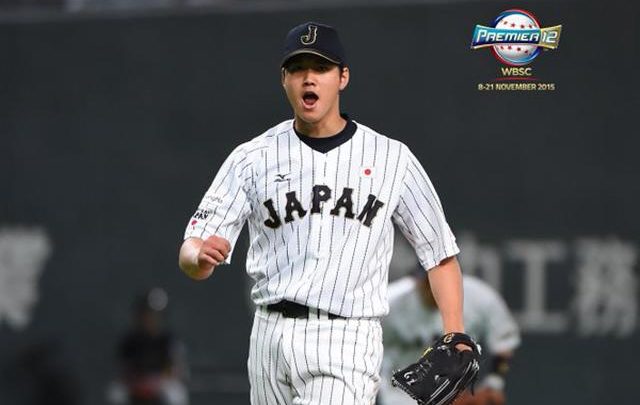
Disagreement on NPB Posting System May Keep Two-Way Phenom Otani in Japan
Even if you’re not as borderline-obsessed with the Shohei Otani saga as I am, you’ve probably heard at least a little bit about it by now. Like how MLB’s new collective bargaining agreement severely hampers his earning power if he comes over in the next two years and how he’s reportedly unconcerned with said limitations. Maybe you’ve even followed as we explained how the Cubs are very much in the hunt for Otani despite being hamstrung by bonus-pool restrictions.
While I was very dubious at the outset, reports continued to promote the idea that Japan’s version of Babe Ruth really wanted to come Stateside for 2018. Ah, but the decision isn’t entirely his to make. While it was merely a bullet point at the end of a Rundown, I hit on the real stumbling block to Otani’s move back in mid-September.
Not only would his representation stand to benefit tremendously by him waiting two years, but his NPB team might as well. Japanese team owners have reportedly discussed a change to the posting system that would tie the release fee to a percentage of the player’s contract. Should that occur, the resultant fee from Otani’s bonus this winter would be a mere pittance (though they’d be silly to change it from $20 million if they know he’s leaving). This is all hypothetical for now, though, and we’ll need to wait until more comes out before we can really grasp the situation.
A report from Joel Sherman of the New York Post confirms that a dispute over the structure of the posting system, namely the money that would go to Nippon Professional Baseball teams, could keep Otani in Japan.
The MLB-NPB posting agreement expired Tuesday. The sides, though, were close to an agreement to move to a system whereby the Japanese team losing a player to MLB would receive a percentage of the deal the player signed with a MLB club — believed to be between 15-20 percent.
However, Otani’s team, the Nippon Ham Fighters, refused to give its needed vote to the deal unless the righty pitcher was grandfathered into the old deal, whereby the Fighters would receive the maximum $20 million in exchange for posting him prior to his Japanese free agency.
The collective bargaining agreement agreed to last offseason made foreign players 25 and older who want to play in the majors unfettered free agents. Those under 25 — like the 23-year-old Otani — are subject to the international pool caps, so the righty thrower is not all that different than, say, a 16-year-old from the Dominican. Thus, he is likely to receive between $300,000 to about $3.5 million and 20 percent of that would be a pittance for the Fighters [emphasis mine].
Sherman adds that MLB is willing to grandfather the two-way phenom in under the old system, but that the MLB Players Association would have to approve such an exception. That’s unlikely to happen given the inequity of the money being received by the player (perhaps as little as $300,000) and his former NPB team ($20 million). I mean, that’s even worse than Mexican teams keeping 75 percent of the bonuses paid to their players.
Further complicating matters is Otani’s representation, which to this point has been a Japanese lawyer who is not certified by the players union. Who Otani wants to work with is his prerogative [insert Bobby Brown reference] and it figures that he’d choose someone with whom he’s familiar, but the union believes things would go more smoothly with a certified agent.
Thing is, Otani wouldn’t even be an MLBPA member right away because the CBA holds that he’d be signing a minor league deal. That’s little more than a formality, of course, as no one’s signing this guy to have him ride buses. And Otani is indeed expected to select representation more amenable to the union, with — you guessed it — Scott Boras at the top of the list.
But none of that matters if all the parties involved can come to an agreement on the posting system. Otani wants to come to MLB and MLB sure as hell wants Otani to come over, so it’s NPB, the Nippon Ham Fighters, and, to a lesser extent, the players union blocking the process.
There’s still time for something to be worked out prior to the opening of the 2018 season, though that’s far from a certainty. And while Otani isn’t motivated by money, remaining in Japan for another couple years and landing a monster deal for his age-25 season and beyond is really the only way to make this work without an international pissing contest ensuing.
What you may have gathered through all of this is that a two-year delay would not be great for the Cubs. Well, it wouldn’t be great for any team, given the difference in what Otani would get now and what he’d command as an unrestricted free agent. More than that, it’s not great for baseball. I’m really looking forward to getting the chance to watch this guy play every day, and I’m not the only one.
We’ll just have to wait and see what comes to pass, but I’ve got a sneaking suspicion that we’re going to have to wait for 2020 to see Otani clearly.

